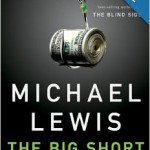Here’s something you don’t see everyday.
Typically, when going through the SEC registration process, you file a registration statement, the SEC comments, you respond and file an amendment, lather, rinse and repeat until all comments are resolved and the issuer is ready to go effective.
However, the SEC can issue a stop order to prevent the use of a registration statement if the registration statement is somehow deficient. This brings us to Counseling International, Inc.
Counseling International originally filed a Form S-1 in August 2012. It filed various amendments through June 2013. There does not seem to be an order declaring it effective, and the comment letters and responses are not yet posted on EDGAR (which occurs some time after effectiveness).
It seems to be a stretch to call this an IPO as the Form S-1 covers the resale of the shares by selling shareholders, there is no underwriter, there is no securities exchange listing and the company’s assets consist of about $21,000. However, it is the initial filing by a non-reporting company.
On August 22, 2013, the SEC issued a stop order after it determined that the registration statement contained false and misleading information, identified by the SEC as:
- failure to disclose the identity of control persons and promoters; and
- false description of the circumstances of the departure of the former chief executive officer.
The prospectus provides the following language, which we guess missed some crucial details:
“The Company was founded by Layla Stone, who served as the director and chief executive officer of the Company until she sold all of her equity interest in the Company to Maribel Flores on October 19, 2012, and resigned from such positions on the same date. On October 19, 2012, Ms. Flores became the sole director and officer of the Company.”
Until the comment and response letters are posted, it will be difficult to know exactly what went on, but it must have been a serious situation for the SEC to take this drastic measure. How drastic, you ask?
First, the registration statement had a typical delaying amendment, so it would not have gone effective without SEC action in any case.
Second, Counseling International agreed to penalties, which include ineligibility to conduct a Rule 506 offering for five years or occupy any position with, ownership of or relationship to the issuer enumerated in Rule 506(d)(1). [Ed. Note: This second clause seems to apply to an individual, but the “Respondent” described in the stop order seems to be limited to Counseling International. Please let me know in the comments if I just missed something, but I had trouble making sense of this. It may be a boilerplate clause, but it is difficult to tell from the stop order document alone. The press release only refers to the ineligibility for the use of Rule 506 as a penalty.]
The SEC had the following to say, which highlights how they viewed the situation:
“Rarely do we have the opportunity to prevent investor harm before shares are even sold, but this stop order ensures that Counseling International’s stock cannot be sold in the public markets under this misleading registration statement.”
Links:
Most recent amendment to Form S-1
Stop Order
SEC Press Release

